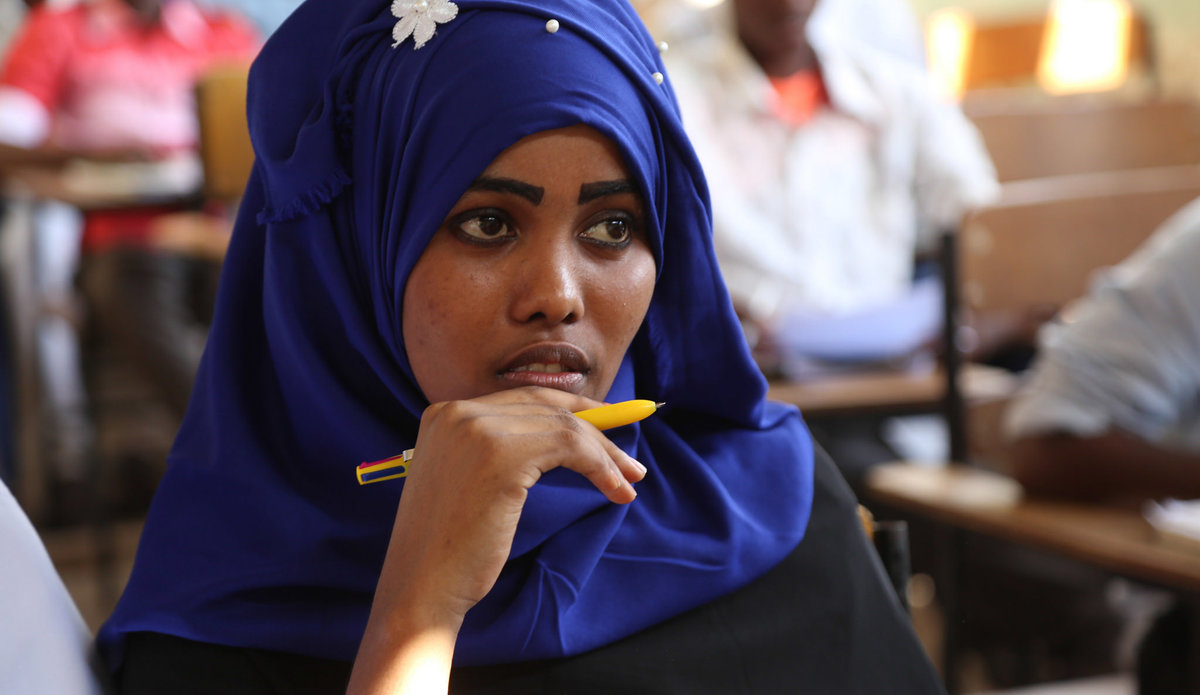Iqra’s triumph in the face of adversity gives hope to Somali youth
After the collapse of Somalia’s central government in 1991, the role of the Ministry of Education was taken over by private institutions, which enrolled and provided education to children of school going age at a cost. Children whose parents could not afford to pay the tuition fees stayed home with no access to education facilities. Nineteen-year-old Iqra Ali Omar was one of them.
Iqra dropped out of school due to financial problems. From a tender age, she lived with relatives, after her parents divorced. Were it not for her resilient spirit, Iqra’s fate would have been like that of many other young Somali girls, who are often forced into early marriages by their impoverished families.
“I lived with relatives because my mother was not with me all the time,” Iqra explains. “She used to transport goods between Belet Weyne and Hargeisa.”
Iqra was eager to get an education, and started her primary education in Hargeisa and later enrolled in a school in the capital Mogadishu, then moved to Belet Weyne. But her enrolment in school was short-lived.
“I enrolled in school but had to drop out after the third year because I couldn’t pay the fees. Later, I got a low paying job that enabled me to go back to school and cover my tuition, until I reached form three,” Iqra explains.
“In my last year of learning in secondary school, I lost my job and could not pay my fees anymore. However, my teachers helped me to complete my studies,” she added.
Paying tuition fees remained a challenge, even at university. “Towards the end of my first semester in university, I got a new job. Now my situation is more stable,” she states.
The second year student in Business Administration at Hiiraan University is now employed as a cashier with the Belet Weyne local authorities. In Somalia, 68% of youth between 15 to 35 years old have not completed any level of education, according to data from the United Nations Population Fund. However, due to her will and initiative, Iqra aspires to be among the 3% of Somalis who obtain a university degree in the country.
“I recovered from the hardship situation I went through, even though I still have a long way to go,” Iqra admits. “I would like to encourage young girls like me who might be facing similar challenges - especially those who do not live with their parents - to be focused and resilient and they will overcome the hardship.”
The UN recognizes youths as important partners and not passive beneficiaries of the organization’s initiatives.
 UN
UN





